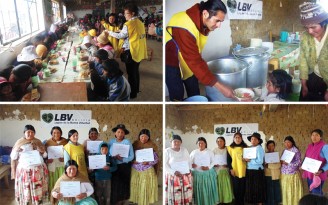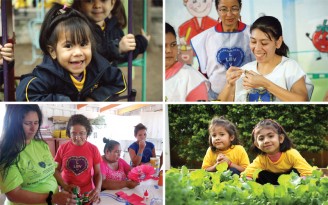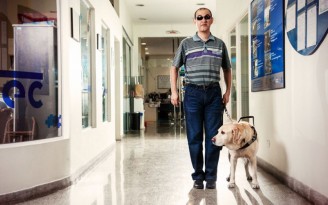
Digital inclusion and the labor market
The challenge of making access to new technologies universal
Leila Marco
Thursday | November 21, 2013 | 11:02 AM | Last update: September 22, 2016, 4:07 PM (Brasilia time)
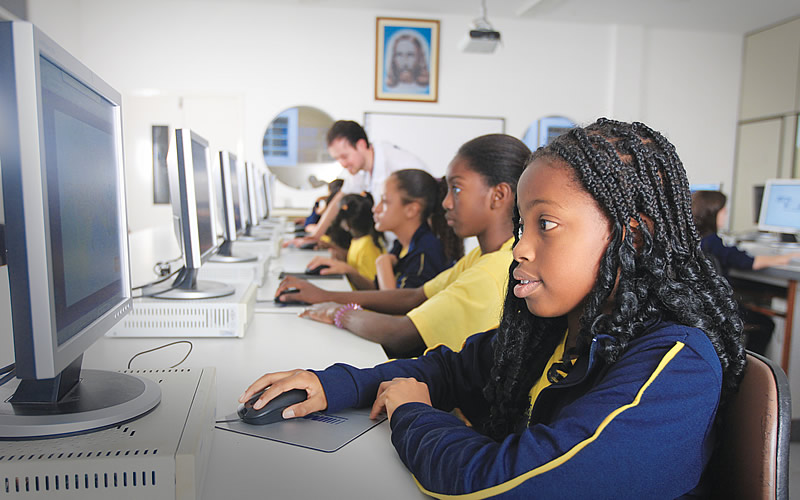
Every day it becomes increasingly essential to take maximum advantage of what new technologies have to offer, reconciling them with the exponential growth of information. Until the beginning of the 1990s knowledge and the use of computer networks in the world was restricted to scientific and academic communities. The Internet, as we know it today, came about with the creation of the World Wide Web (WWW), in 1990, by computer scientist Timothy John Berners-Lee, from the European Organization for Nuclear Research (CERN).
Despite being a great facilitator of tasks and an important means in the educational process, not everyone has access to the Internet and its tools, and this has an influence on the social inclusion process and on people’s access to better opportunities in the labor market. Professor Nelson de Luca Pretto, author of the book Uma escola sem/com futuro: Educação e multimídia (1996) [A school with/without a future: Education and multimedia], says that “the illiterate person of the future will be the individual who does not know how to decipher the new language generated by the means of communication.”
To make the use of Information and Communication Technologies (ICTs) available to the masses, as a way of contributing to improvements in the living conditions of the population, countries in general, including emerging nations like Brazil, have faced serious barriers.
In May 2012, the Getulio Vargas Foundation (FGV) disclosed in the new Digital Inclusion Map survey, prepared in partnership with the Telefônica/Vivo Foundation, that the Brazilian economy, the world’s seventh largest, was still experiencing a type of “digital apartheid”.
The study, which was coordinated by economist Marcelo Neri, who at the time was the Head of the FGV’s Social Policies Center and today is the interim Chief Minister of the Department of Strategic Affairs (SAE), revealed that a third of the population has access to the Internet at home, while 65 out of every 100 Brazilians over the age of 10 said they did not know how to use the web. Another noteworthy fact is the concentration of digital devices in the upper class; 7 out of every 10 homes with a computer and Internet access belong to the richest people. This shows that much still needs to be done to correct the inequality that exists in access to ICTs.
The Legion of Good Will helps reduce this gap, by working on behalf of digital inclusion and for better living conditions for low-income families. That is why for more than a decade it has had IT laboratories in most of its schools and Community Centers for Social Assistance. In 2012 alone it helped more than 93,000 people in this area, benefiting children, young people (in search of their first job), adults (professional job placements), and the elderly.
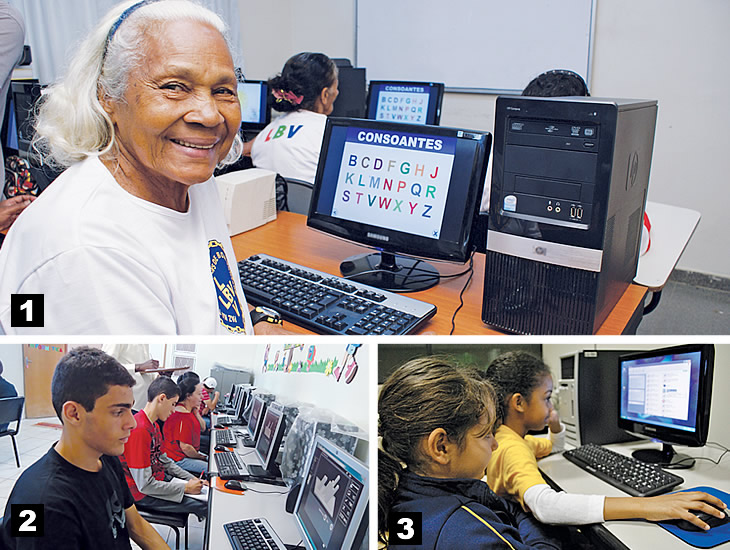
Focus on the North and Northeast of Brazil
The Digital Inclusion Map indicated that there was inequality in the five Brazilian regions. The Internet access ranking showed two very distinct groups. The first ten places are occupied by the states of the South, Southeast, and Mid-West, while the North and Northeast hold the lowest indicators.
In these last two regions, the LBV is working very hard to reduce the lack of digital opportunities, the highlight being the assistance provided in the cities of Aracaju, Salvador, Recife, Teresina, Itabuna, Fortaleza, São Luís, and Belém.
The activities of the Organization’s IT lab are part of the actions of the Trainingand Productive Inclusion program, which offers free courses for the development of the skills necessary for a better professional job placement or for the person assisted to become an entrepreneur. The initiative also favors community life and the values of citizenship.
In the computer classes participants learn how to use applications (text editor and electronic spreadsheets), browse the Internet, and about the computer’s operating system. The main objective is to offer digital training to young people and those who find themselves outside the job market, which increasingly requires that workers have such knowledge. Students also receive guidance on how to put together and format their own resume.
Placement in the labor market
In the capital city of Pernambuco State, Victorio Drumond de Farias, 20, is one of the many young people who seek the support of the Legion of Good Will. He comes from a simple family in Recife and was unable to pay for a course, but he found in the LBV a path to succeed. In addition to learning how to use the digital tools that are currently most requested, Victorio emphasized some of the other benefits of the course: “We received a lot of texts to read and type, which enriched our knowledge of the Portuguese language. We prayed every day. It was good for me and I think for the other people too; the group was very united because of this.”
For the young man, the large amount of reading he had to do and the quality of the texts were decisive when it came to him learning how to express himself better in job interviews. In a recent selection process in which he participated, along with almost 100 candidates, he was chosen as one of the 25 best prepared. His good result gave him a placement in the job market and was an incentive for him to pursue new dreams.
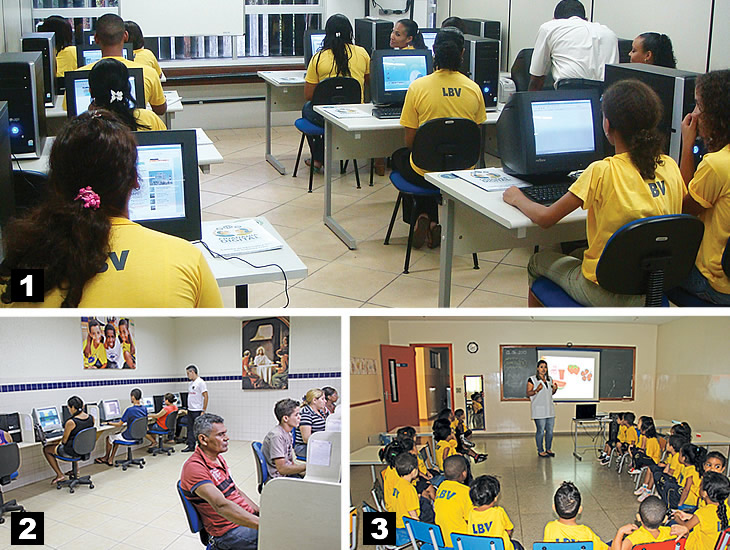
No age limit
In order to enjoy the benefits resulting from the new technologies available, many elderly people try to enter the digital world. They want to feel active and up-to-date, in step with the lifestyle of their families and with society. To do so they must overcome, for example, the possible difficulty of memorizing and handling the computer, in addition to restricted access to the IT world.
Francisca Gregório, 67, lives in the capital city of Ceará State and had difficulties even using bank ATMs. She also suffered from a worrying psychosocial condition, which included low self-esteem and lack of motivation. In the Legion of Good Will’s Community Center for Social Assistance in Fortaleza she found the necessary support in the Learning and Interaction program.
Thanks to this solidarity-based action she was able to overcome other barriers. “Because of my age, I was ashamed to start a computer course. But a teacher here said that this wasn’t a problem.” Even though she is still attending the lessons, Francisca is celebrating: “It’s a victory. I already know how to do lots of things... open the notepad, use Facebook, and do research on the Internet, and I didn’t even know how to turn on a computer.”
The Organization’s proposal to familiarize the elderly with the digital environment represents a way of helping the Third Age and younger people to have equal opportunities for evolving. In the words of the President of the LBV, Paiva Netto, this means: “Allying the bountiful energy of young people with the wealthy experience of older people.”
